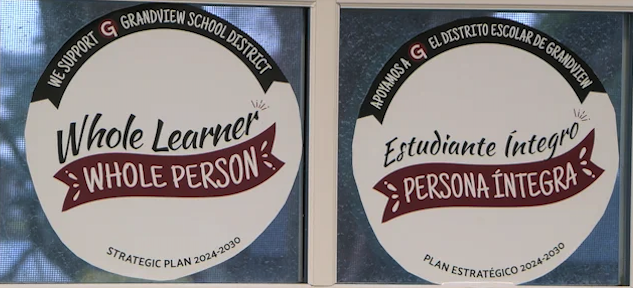
Running Start
Benefits and Things to Consider
There are a number of benefits afforded to students who participate in the Running Start program, but students can also encounter some challenges. You can hear from some of our students about their experiences in Running Start and read below about some of the benfits and challenges you might encounter in the program. As you make the important decision about applying to the Running Start program, please keep the following in mind.
Benefits to Participating in Running Start
- Students have the opportunity to take courses that may not be offered at their local high schools.
- Academically prepared students have an opportunity to take college level courses.
- Students have an opportunity to experience university education while in high school. This experience may be helpful in making the transition from home to college, self-assessing college readiness skills, and in informing future education plans.
- Students can earn up to two years of tuition-free college credit, saving many dollars in college education.
- It is not uncommon for students who have strong college readiness skills, yet have difficulty fitting-in the traditional high school setting, to flourish in a different educational setting such as college.
- In college, high school students have the opportunity to gain academic and career maturity and knowledge from participating within the challenge of a college setting and with other college students.
- Running Start students are eligible to take part in college activities, with the exception of intercollegiate athletics.
- Students can get a “Running Start” on completing a college degree including general education requirements and prerequisites to a college major.
- Students may still participate in any high school extracurricular activity, if time permits and consistent with Washington Interscholastic Athletic Association (WIAA) rules of eligibility.
- Students who have transferred between high schools and have incurred credit difficulties may find that Running Start can help them meet graduation requirements on time.
- Financially, this is the best scholarship a student can earn. Consider the worth of each college class completed.
Things to Consider
- Some students who are academically qualified may not be ready socially or emotionally for the college environment. They may find the independence and speed of college classes overwhelming. Maturity is one of the key ingredients needed for success in Running Start.
- High schools provide a social network and social development experiences for teenagers. This network is not as readily available at the college level as it is in the high schools. However, Running Start students may participate in student activities at the college, such as clubs.
- Students are not guaranteed space in preferred college classes, and college schedules may conflict with high school classes or extracurricular activities (sports, drama, music, etc).
- CWU operates on a quarter system, which may be different from the high school academic calendar. Holidays and vacation periods are frequently different. Students are expected to attend classes at the university even though their high schools may not be in session. Careful planning must occur in order to avoid conflicts in family and school activities.
- College courses move at a much faster pace than high school courses. A class that may take a semester or year at the high school will be completed in ten weeks at the university.
- The high school is the final authority on high school graduation requirements. It is important to work closely with a high school counselor to insure graduation requirements will be met. Some schools may not allow students to participate in graduation ceremonies if their college classes are not completed by the date of graduation. Check with the high school for their policies.
- Students and their families are responsible for tuition costs above 1.4 combined high school and college FTE. A student taking a full courseload at the college might be eligible to take only one class at their high school. It is the student and family responsibility to understand these limitations and carefully plan his/her educational program.
- College classes are designed for adult learners. Contemporary issues of our society will be actively discussed in our classrooms. The content of classes will not be censored for younger students.
- The high school determines students’ eligibility to be involved in high school activities. Being away from the high school might mean that students are out of the loop for some things, such as activity requirements or scholarship application deadlines.
- The program is not free. Tuition is covered up to 1.4 combined high school and college FTE. Students must pay for mandatory college fees, books, online course fees, campus parking, gas, supplies, and other related costs.
- Students start a college transcript when they take their first college class. It will stay with them throughout their college careers. If students perform poorly, it may jeopardize future college plans. These grades will transfer back to the high school transcript as well.
- There is much less contact between colleges and parents than the high schools and parents.
- College offers a much less structured environment with more independent study required. The speed at which college classes are taught is much faster than classes in high school. College classes typically demand approximately 2 hours of homework for each hour of class, with no classroom time for homework.
- Communication concerning grades and attendance is more frequent in high schools.
CWU News

$4 million federal grant aimed at helping with school psychologist shortage
February 25, 2026 by Marketing and Communications

CWU Disability Services aims to provide equitable access to education
February 23, 2026 by Rune Torgersen